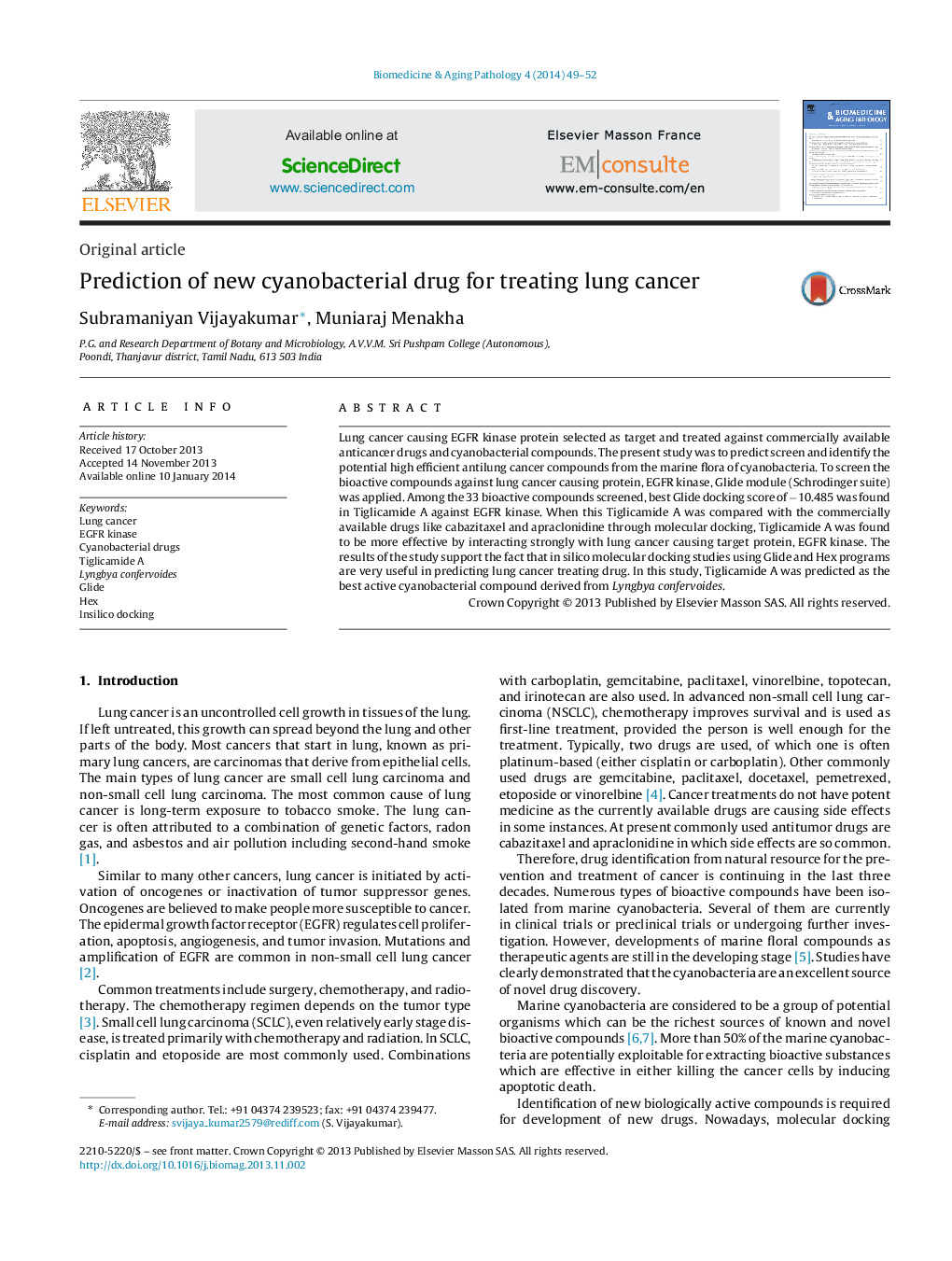| Article ID | Journal | Published Year | Pages | File Type |
|---|---|---|---|---|
| 2576192 | Biomedicine & Aging Pathology | 2014 | 4 Pages |
Abstract
Lung cancer causing EGFR kinase protein selected as target and treated against commercially available anticancer drugs and cyanobacterial compounds. The present study was to predict screen and identify the potential high efficient antilung cancer compounds from the marine flora of cyanobacteria. To screen the bioactive compounds against lung cancer causing protein, EGFR kinase, Glide module (Schrodinger suite) was applied. Among the 33 bioactive compounds screened, best Glide docking score of â10.485 was found in Tiglicamide A against EGFR kinase. When this Tiglicamide A was compared with the commercially available drugs like cabazitaxel and apraclonidine through molecular docking, Tiglicamide A was found to be more effective by interacting strongly with lung cancer causing target protein, EGFR kinase. The results of the study support the fact that in silico molecular docking studies using Glide and Hex programs are very useful in predicting lung cancer treating drug. In this study, Tiglicamide A was predicted as the best active cyanobacterial compound derived from Lyngbya confervoides.
Keywords
Related Topics
Health Sciences
Medicine and Dentistry
Geriatrics and Gerontology
Authors
Subramaniyan Vijayakumar, Muniaraj Menakha,
